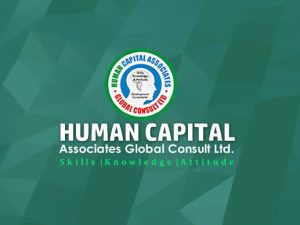Workshop on Maintenance Planning, Scheduling & Cost Control
February 19 – 23, 2024, 1st Run: Lagos & Port Harcourt
August 19 – 23, 2024, 2nd Run: Lagos & Abuja
For Tutor -Led Class: 9am – 4:30pm
Workshop fee: N300, 000 per Participant
For online: Delivery via Zoom
Online course fee: N250, 000 per Participant
Available for In-plant Training
Program overview:
Maintenance planning and scheduling is the first step needed to assist maintenance departments in achieving the two conflicting roles of maximizing assets availability and reliability with the optimal cost. Besides planning and scheduling, the planners need to ensure that all logistics are provided for, and engaged in the financial evaluation of maintenance initiatives. A maintenance control system is part of the overall maintenance system and is made up of several subsystems including procedures for effective execution of planned and scheduled work, and work approval procedures based on clear standards to ensure quality maintenance work, shutdown management, and management reporting and analysis.
For whom:
This program is designed to provide essential physical asset management skills for Maintenance Engineers, Supervisors, and Planners; Maintenance Operations Professionals; Maintenance Schedulers and Work Preparers. Maintenance Support Team Members will equally benefit from this course.
Learning objectives:
At the end of the course, participants will be able to:
- identify planning best practices and key elements for taking action on them;
- explain how world-class organizations solve common planning problems;
- evaluate their practices compared to those of others;
- improve productivity through the use of better and timely information;
- create and preserve lead-time in work management and use it for planning and scheduling resources; and
- improve consistency and reliability of asset information.
Course outline:
DAY 1 –Modern Maintenance Management Practice
- Maintenance Practice in Perspective
- The Contribution of Maintenance to the achievement of the Business Objectives
- Business, Operations and Maintenance Key Performance Area
- The Maintenance Objective
- Roles and Accountability
DAY 2 – Maintenance Policies and Logistics Planning
- Equipment Classification and Identification
- Functional Location, Equipment Classification & Identification
- Part Number and Bill of Material, Documentation Structures
- Document Identification and Classification
- Maintenance Management Policies
- Equipment Criticality Grading, Job Record Policy
- Job Information Requirements, Principles of Work Order Design
- Maintenance Work Prioritization
- Maintenance Logistics Planning
- Logistic Support Analysis, Maintenance Task Detail Planning
- Maintenance Work Estimating, Maintenance Levels
- Support Documentation, Support Equipment
- Personnel and Organization
DAY 3 – Failure Management Programme Development
- Failure Modes, Effects and Consequences
- Equipment Functions and Performance Standards
- Functional Failures, Failure Modes & Failure Effects
- Consequences of Failure, Failure Management Policies
- Age-Related Failure Patterns, Random Failure Patterns
- Routine Restoration and Discard Tasks, Routine
Condition-based Tasks
- Failure-finding Tasks
- Implementing Failure Management Policies
- Proposed Routine Maintenance Tasks, Corrective
Maintenance Planning
- Categorizing and structuring Routine Maintenance Tasks
DAY 4 – Work Planning, Scheduling and Control
- Definition of Notifications, Defects, Deviations
- Notification Process, Roles, and Principles,
Prioritizing Notifications
- Weekly Master Schedule
- Master Schedule Objectives, Categorize the
Outstanding Workload
- Determine Resource Availability & Equipment
Non-utilization Profile
- Develop Draft Master Schedule,
Conduct Master Schedule Review Meeting
- Final Master Schedule and Implementation,
Backlog Management
DAY 5 –Information and Performance Management
- Management and Information
- Information and Control, Management Levels
and Information
- Performance Indicators, Workload Performance
Indicators
- Planning Performance Indicators, Effectiveness
Performance Indicators
- Cost Performance Indicators
- Management Reporting
Training Methodology
Lectures, discussions, exercises, and case studies will be used to reinforce these teaching/learning methods.
Related Courses






